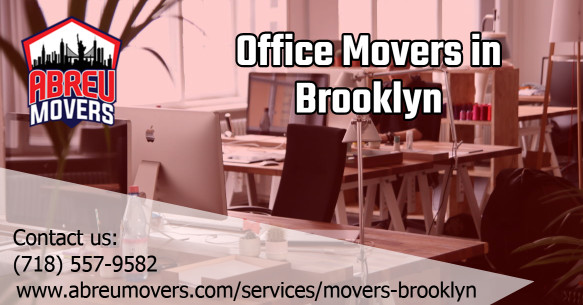

Introduction
Moving can be an exciting yet stressful experience. Whether you are moving across town or just a few blocks away, there are many factors to consider when planning your local move. One important aspect that often gets overlooked is moving insurance. While nobody wants to think about accidents or damage during a move, it is crucial to protect your belongings and have peace of mind. In this article, we will explore the various options available for moving insurance and provide you with valuable insights on how to choose the right coverage for your local move.
Understanding the Importance of Moving Insurance
Moving insurance is designed to protect your belongings in case they get damaged or lost during the moving process. While professional movers take precautions and handle items with care, accidents can still happen. Having the right insurance coverage ensures that you are financially protected if any unfortunate incidents occur.
How to Choose the Right Moving Insurance for Your Local Move
1. Assess Your Needs and Budget
Before diving into the world of moving insurance, it is essential to assess your needs and budget. Consider the value of your belongings and determine how much coverage you require. Additionally, evaluate your budget and decide how much you are willing to spend on http://eduardoizdq840.almoheet-travel.com/moving-services-for-students-affordable-options-in-brooklyn insurance premiums.
2. Research Different Types of Moving Insurance
There are several types of moving insurance available, each offering different levels of coverage. It's crucial to research and understand these options before making a decision. The most common types of moving insurance include:
Full Value Protection
Full Value Protection provides the highest level of coverage for your belongings during a move. With this type of insurance, if any items are lost, damaged, or destroyed, the moving company will either repair or replace them at their full value.
Released Value Protection
Released Value Protection is the most basic level of coverage provided by movers at no additional cost. However, it offers minimal protection, as the moving company is only liable for a maximum of 60 cents per pound per item. This type of insurance may be suitable for items with low value but is generally not recommended for valuable possessions.
Lump Sum Value Protection
Lump Sum Value Protection allows you to declare a specific value for your belongings and pay a premium based on that amount. If any items are lost or damaged, you will be compensated up to the declared value. This type of insurance provides more coverage than Released Value Protection but is not as comprehensive as Full Value Protection.
3. Consider Third-Party Insurance Providers
While most professional moving companies offer their own insurance options, it can also be beneficial to explore third-party insurance providers. These companies specialize in providing moving insurance and often offer more comprehensive coverage at competitive rates. Research well-known third-party providers and compare their policies with those offered by your chosen moving company.
4. Read and Understand the Fine Print
Before signing any insurance agreement, it is crucial to read and understand the fine print. Pay close attention to exclusions, limitations, deductibles, and any additional fees associated with the policy. If you have any questions or concerns, don't hesitate to reach out to the insurance provider or moving company for clarification.
5. Seek Recommendations and Read Reviews
Word-of-mouth recommendations from friends, family, or colleagues can be invaluable when choosing moving insurance. Ask around and see if anyone has had positive experiences with specific providers or policies. Additionally, take the time to read online reviews from reputable sources to gain further insight into the reliability and customer satisfaction levels of different insurance options.
6. Evaluate Additional Coverage Options
In addition to basic coverage for loss or damage during transportation, consider if you need additional coverage for specific items such as antiques, artwork, or valuable electronics. Some insurance providers offer specialized coverage options for high-value items that may not be adequately protected under standard policies. Evaluate your belongings and determine if any additional coverage is necessary.
Frequently Asked Questions
1. What factors should I consider when determining the value of my belongings?
When determining the value of your belongings, consider factors such as purchase price, current market value, age, condition, and sentimental value. It may be helpful to create an inventory list with corresponding values to assist you in estimating the overall worth of your possessions.
2. Can I rely solely on the moving company's insurance coverage?
While moving companies typically offer some level of insurance coverage, it may not be sufficient for your needs. It is recommended to explore supplemental insurance options to ensure comprehensive protection for your belongings.
3. Are there any items that are typically excluded from moving insurance coverage?
Certain items are often excluded from standard moving insurance coverage, such as jewelry, cash, important documents, and perishable goods. It's important to review the policy's exclusions to understand what is and isn't covered.
4. Can I purchase moving insurance after my belongings have been packed?
Ideally, you should purchase moving insurance before your belongings are packed and loaded onto the moving truck. However, some insurance providers may offer coverage even if you have already begun the moving process. Contact the provider as soon as possible to discuss your options.
5. How can I file a claim if my belongings get damaged or lost during the move?
In the unfortunate event that your belongings get damaged or lost during a move, contact your insurance provider immediately to initiate the claims process. They will guide you through the necessary steps and documentation required to file a claim successfully.
6. Can I transfer my existing homeowner's or renter's insurance policy for my local move?
It's important to consult with your homeowner's or renter's insurance provider to determine if they offer any coverage for local moves. In some cases, your existing policy may provide limited coverage during a move, but it's essential to clarify the details with your insurance provider.
Conclusion
Choosing the right moving insurance for your local move is a crucial step in ensuring the safety and security of your belongings. By assessing your needs and budget, researching different types of insurance, considering third-party providers, reading the fine print, seeking recommendations, and evaluating additional coverage options, you can make an informed decision that provides the necessary protection during your move. Remember to consider all factors and choose a policy that offers comprehensive coverage at a price point that aligns with your budget. With the right moving insurance in place, you can have peace of mind knowing that your belongings are protected throughout the entire moving process.